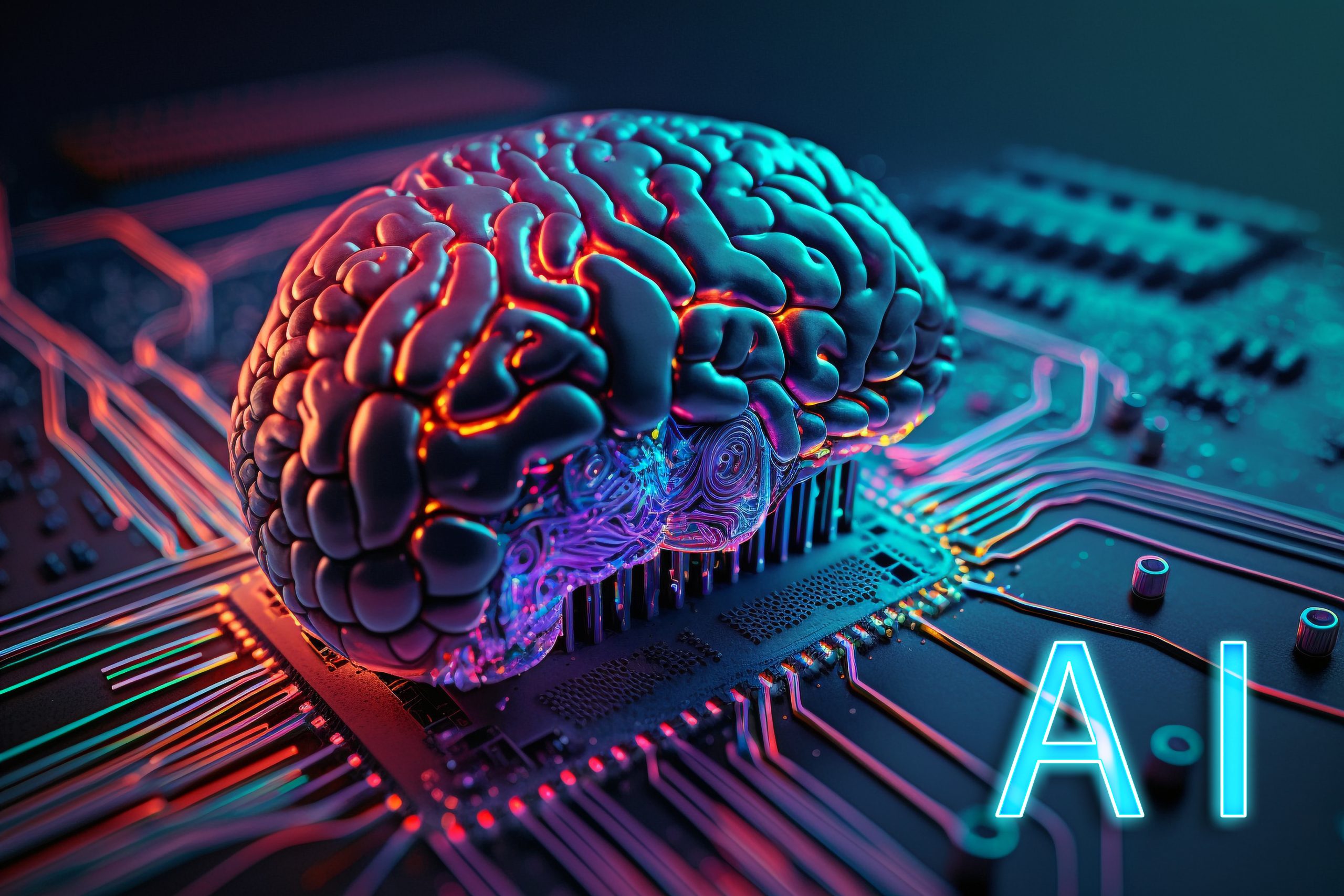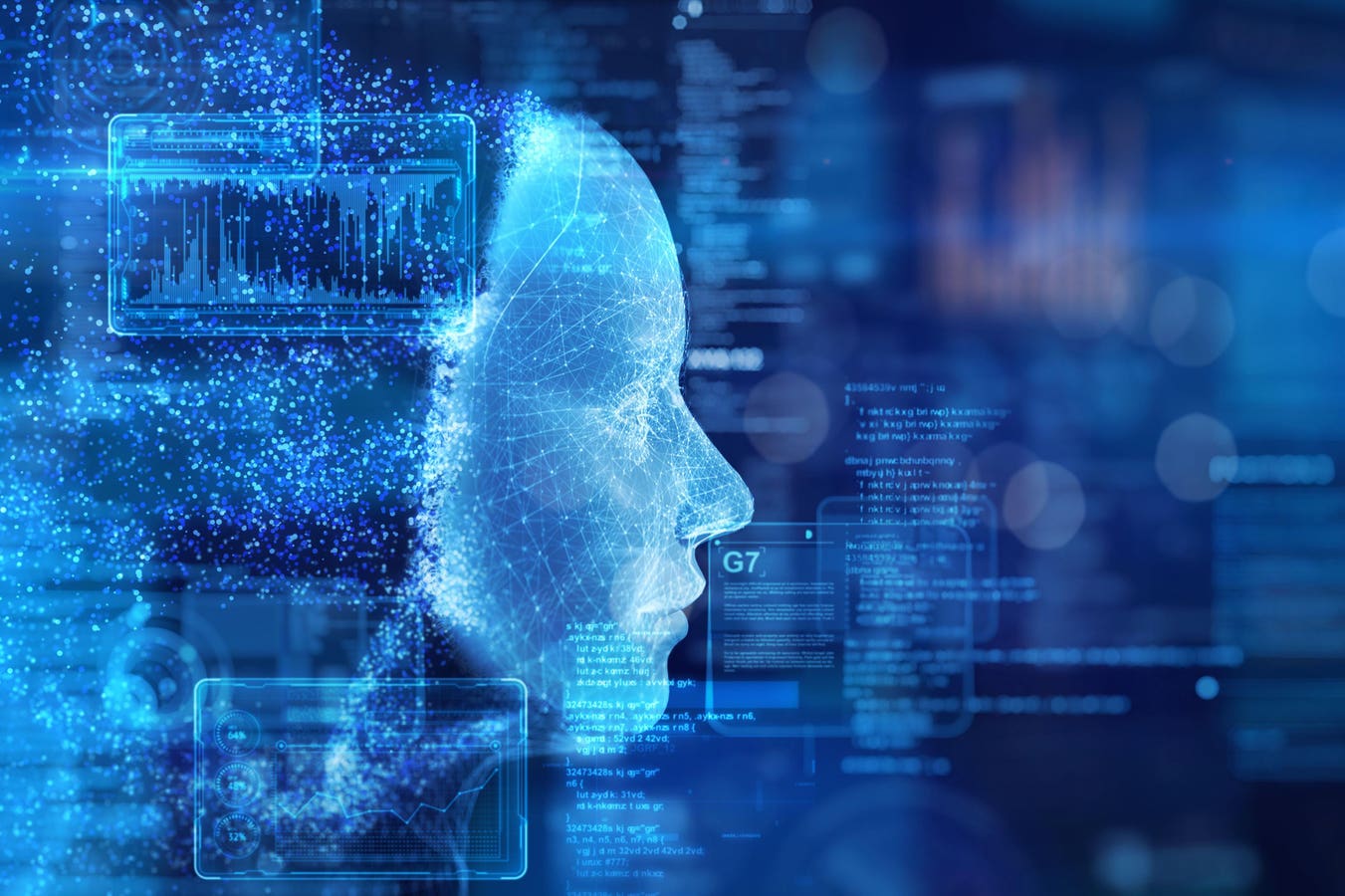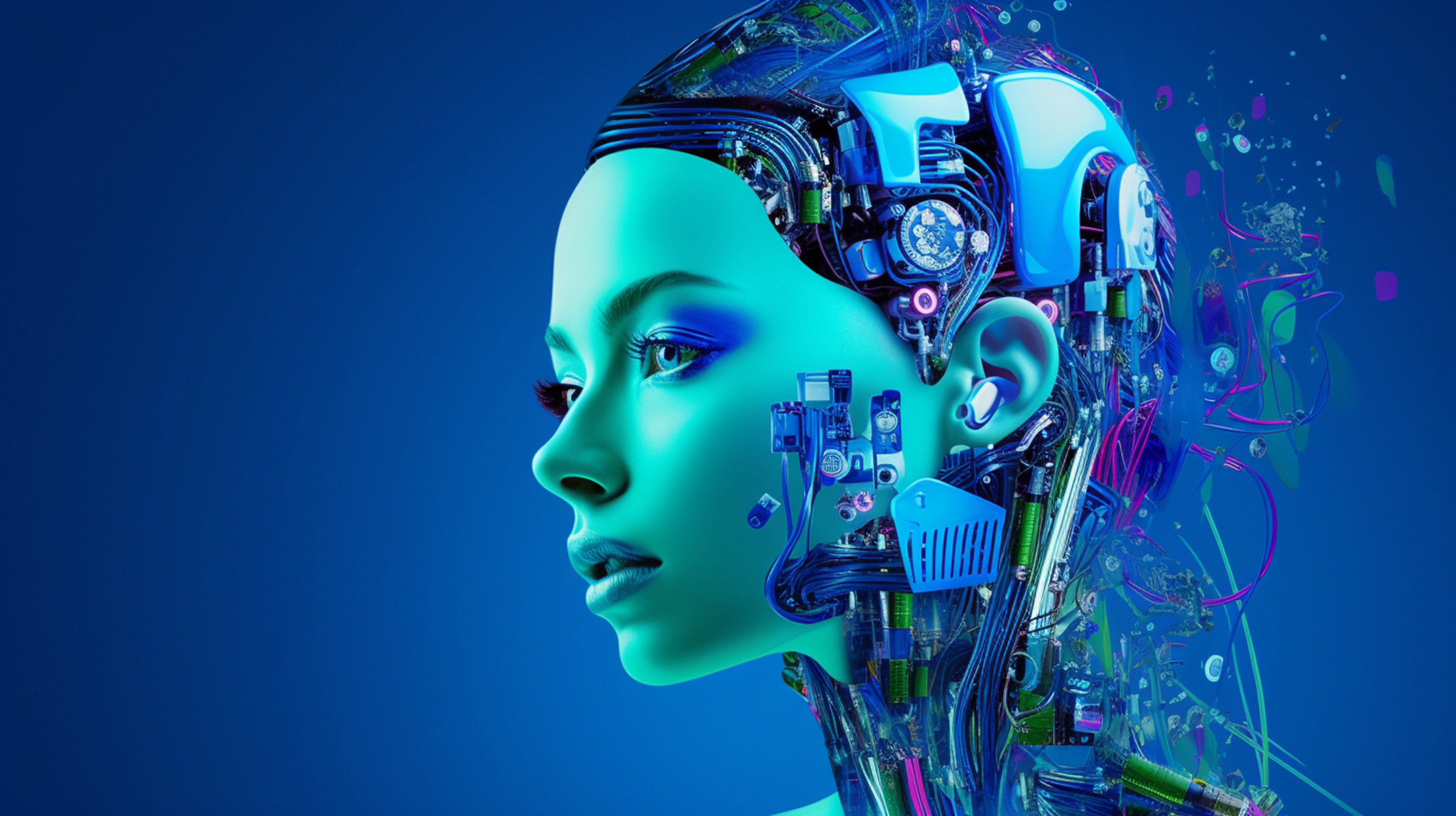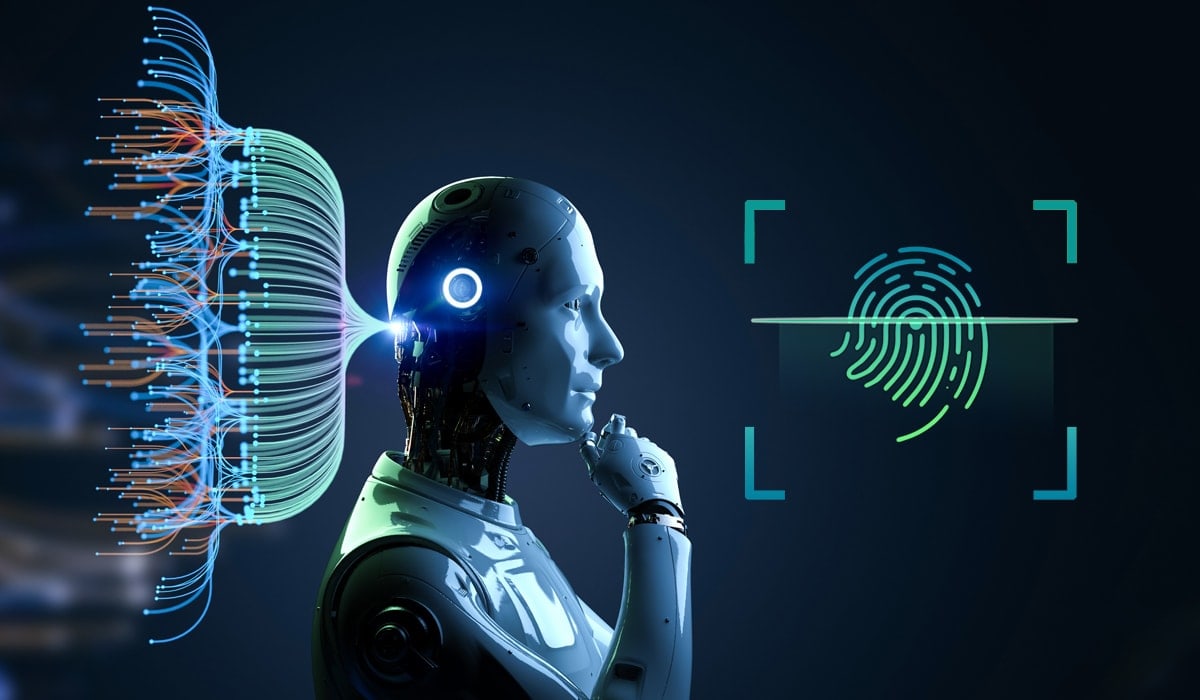
In today's dynamic business landscape, customer service plays a pivotal role in shaping the success of any enterprise. With the rapid advancements in artificial intelligence (AI), companies are leveraging innovative technologies to enhance customer experiences. One such groundbreaking application is AI-driven personalization in customer service.
This transformative approach tailors interactions based on individual preferences, providing a seamless and customized experience. From chatbots to predictive analytics, AI is reshaping the way businesses engage with their customers.
Introducing AI-driven Personalization
A state-of-the-art strategy for improving digital consumer experiences is AI-driven customization. Machine learning and artificial intelligence (AI) help companies sift through mountains of consumer data, including demographics, social media engagement, purchase history, and online behavior.
They are able to comprehend the distinct tastes and requirements of any client because of this. Using AI to forecast and provide real-time tailored product choices, Amazon's recommendation system is a prime example of how this technology may increase sales and consumer engagement.
What Is AI-Powered Personalization?
With the rise of digital technologies, companies are discovering new methods to engage with consumers and tailor their offerings to their unique needs. A fascinating new trend in this field is the use of AI and ML to create tailored experiences for each consumer.
Collecting and analyzing massive volumes of consumer data, including demographics, social media interactions, purchase and browsing history, and more, is the foundation of AI-powered customization. Each customer's unique requirements and preferences may be better met with the usage of this data.
One well-known use of AI in customization is the recommendation system offered by Amazon. In order to provide real-time product recommendations based on a customer's likely interest in a given product, the system employs a machine learning algorithm to sift through their purchase and search histories, among other behavioral data.
A large part of the rise in consumer interaction and Amazon sales may be attributed to these individualized suggestions.
Why Use AI-driven Personalization In Marketing?
Customers have higher expectations and want tailored experiences from the businesses they love, making AI-driven customization a game-changer in marketing.
A large number of customers will be less inclined to purchase, and 27% will stop using the brand altogether if customization is not provided.
This may have a significant effect on income. With AI-powered customization, companies can interact with consumers on a deeper level, which boosts happiness and loyalty. It enables specific targeting and tailored messages for essential customers, which is particularly important in account-based marketing.
How To Use AI-driven Marketing Personalization?
Marketers may improve their marketing efforts, provide tailored experiences that connect with their audience, and increase customer happiness by applying AI in the areas stated below.
Emails And Messaging
Through the use of AI, we can learn about our customers' tastes and use that information to create emails and messages that are uniquely suited to them. It improves click-through rates by sending personalized messages depending on user actions, such as their location or online activity.
Tailored Recommendations
AI improves consumer engagement by suggesting products and services based on user actions. Chatbots provide individualized choices and loyalty-based discounts, while recommendation engines help businesses like Amazon and Spotify find comparable products.
Dynamic Websites
AI modifies information on websites according to real-time behavioral cues and previous interactions, making each version unique to each user. Websites that are dynamic display a variety of items and layouts depending on the preferences of the visitor.
Forecasting
With the use of AI, marketers can improve customer journeys and precisely estimate product demand by anticipating consumer behavior. When it comes to allocating funds and improving return on investment (ROI), predictive marketing is a lifesaver.
Language And Sentiment
Through language analysis, AI can detect consumer sentiment, which aids marketers in gauging responses and enhancing ads. It allows chatbots to mimic human conversation by reacting to natural language.
Assistive Search
With the help of assistive search, made possible by developments in natural language processing, users are guided to results that are tailored to their interests and actions. Customized autosuggest and contextual recognition are available with "smart search," and it works even with misspellings. Users may locate comparable things via images with the use of image recognition.
How To Implement AI-Powered Personalization?
A successful customization strategy that makes use of AI needs meticulous preparation and implementation. To help you create a personalized AI experience, we've compiled some helpful guidelines.
Define Objectives
The need for customization should be crystal evident before deploying AI-powered customization. A company may need customization if it wants to do things like boost revenue, make customers happier, decrease customer turnover, etc. In order to build and implement a strategy to accomplish underlying goals, it is crucial to have clear customization objectives.
Use High-quality Data
The amount and quality of consumer data accessible have a significant impact on how effective AI-powered customization is. In order to better understand their consumers' habits and interests, businesses need to institute a system to gather and maintain high-quality data.
Test And Refine
Customers' input should be used to regularly test and modify the customization approach, ensuring it is up-to-date and improved appropriately.
Be Transparent
Businesses should be forthright about the data they gather and how they use it for customization if they want to earn their consumers' confidence. Among these measures is the dissemination of transparent privacy policies and the description of the processes by which consumer data is used to provide tailored services.
Personalize Across Channels
Every point of contact with the consumer, whether by email, social media, or in-store, should include personalization. As a result, the consumer will get a uniform and personalized experience across all platforms.
The Rise Of AI In Customer Service
The evolution of customer service is experiencing a seismic shift with the rise of artificial intelligence (AI). Businesses are navigating a new era where automated systems and intelligent algorithms are transforming how they engage with customers.
This revolution is not merely about incorporating technology but reshaping the very essence of customer interactions.
From Reactive To Proactive - AI's Dynamic Response
Traditional customer service models often operate reactively, responding to customer queries as they arise. AI injects a dose of proactivity into this equation. Through predictive analytics, AI can anticipate customer needs, addressing issues before they even emerge.
This shift from reactive to proactive service is a game-changer, fostering a more seamless and satisfying customer experience.
Chatbots - Redefining Instant Gratification
At the forefront of this revolution are AI-driven chatbots, the virtual assistants of the digital age. These conversational agents are not just automating responses; they are redefining instant gratification.
Chatbots provide real-time assistance, resolving queries at the speed of digital thought. This immediacy is not just a convenience; it's a fundamental shift in the tempo of customer interactions.
Democratizing Accessibility - Anytime, Anywhere Support
The beauty of AI in customer service lies in its omnipresence. No longer bound by office hours or time zones, AI ensures accessibility anytime, anywhere.
Whether a customer seeks assistance at midnight or during peak business hours, AI is there to provide support. This democratization of accessibility aligns perfectly with the 24/7 expectations of the modern consumer.
Adaptive Learning - Machines Evolving With Every Interaction
Unlike static systems, AI in customer service is a dynamic learner. Through machine learning algorithms, these systems evolve with each interaction. Customer queries become the raw material for improvement.
This adaptive learning loop not only enhances the accuracy of responses but positions AI as an ever-evolving ally in the quest for unparalleled service excellence.
Scalability Unleashed - AI As The Growth Catalyst
Businesses face the challenge of maintaining service quality as they grow. AI emerges as the growth catalyst, providing scalable solutions that adapt effortlessly to increasing demands.
Whether a startup is experiencing sudden success or an established enterprise expanding globally, AI ensures that customer service remains a scalable and consistent aspect of the business journey.
Multifaceted AI - Beyond Text, Beyond Bots
AI's role in customer service extends far beyond scripted interactions. Voice-activated AI, equipped with natural language understanding, introduces a new dimension.
Now, customers can engage in spoken conversations with AI, breaking the barriers of text-based exchanges. This multifaceted approach broadens the scope of AI's impact on customer engagement.
Real-Time Adaptability - Dynamic Responses To Ever-Changing Needs
In the dynamic landscape of customer preferences, AI stands out for its real-time adaptability. By analyzing real-time data, AI systems adjust responses, recommendations, and interactions.
This agility ensures that the customer experience is not a static journey but a dynamically evolving one, keeping pace with the ever-changing needs and expectations of the audience.
Security Reinvented - AI As The Guardian Of Trust
In an era of increasing digital transactions, trust is paramount. AI contributes to this trust by reinventing security measures. Machine learning algorithms actively detect and prevent fraudulent activities, enhancing data security for both businesses and customers. The result is not just secure transactions but a reinforcement of trust in the digital realm.
Everyday Use Cases For AI-enabled Hyper-personalization
Organizations may get a deeper understanding of their consumers, boost engagement and loyalty, and enhance sales with the aid of AI customization. Examples of industry-specific use cases include tailored healthcare and treatment, while examples of more generalizable use cases abound.
Better Customer Service
When trying to elicit a response from consumers, marketers should focus on the more nuanced "micro" aspects of content. This is crucial for marketers who want their content to stand out in this crowded landscape.
Instead of making assumptions based on past contacts with customers, AI can assist us in determining their genuine mood. Instead of attempting to predict based on general acquired behavioral features, computers may learn users' personality peculiarities and notice when users are happy.
Personalized Content
Companies have come to realize that there is no "one size fits all" solution when it comes to content and that consumers vary greatly. Organizations may address this problem by tailoring their material to each person. Take mobile technology as an example. Brands may use the customer's location to send targeted information and offers automatically.
Personalized Messaging
Businesses may now reach their users and consumers with more tailored communications thanks to the rise of customized profiles. If my bank is aware that I am relocating, for instance, they may contact me with personalized messages on mortgage rates and discounts.
Alternatively, a home improvement firm may use individualized customer data to send me more relevant and engaging email content based on my recent home purchase, increasing the chance of conversion compared to sending me generic messages.
Personalized Ad Targeting
Companies are able to place better, more targeted adverts in near real-time using machine learning, which takes into account a range of characteristics. Ad requests may be more precisely and efficiently targeted to the right audience at the right time when these factors, which include demographics, purchasing history, and behavior, are taken into account. The use of artificial intelligence and machine learning would make this almost impossible to do.
Product Recommendation
Businesses may upgrade their recommendation systems from rule-based to smarter ones with the use of machine learning algorithms. Businesses may improve their real-time product suggestion capabilities by analyzing data points like a customer's cart contents or past transactions.
To aid businesses of all sizes in developing massively tailored user experiences in real-time, Amazon has now released its ML-based recommendation system for sale.
With this service, which goes by the name of Amazon Personalize, developers can easily create apps that provide users with a variety of personalized experiences, such as tailored product suggestions, re-ranking of products based on user preferences, and targeted direct marketing.
Personalized Websites
Businesses who know how to attract visitors to their websites also know that different people will get different advantages from different types of content. Sites that use machine learning and big data may personalize their content for each visitor.
They may dynamically update the material shown on the screen by considering a range of data points, such as purchase data and other real-time or historical activity on the site.
AI-enabled Avatars, Robots, And Greeters
A growing number of companies are seeing the benefits of using robots in their operations. As an example, Hilton Hotels employs the services of a robot concierge called Connie to ensure that each visitor has an unforgettable and personalized experience.
In the foyer, the two-foot-tall robot stands ready to answer any queries or welcome any visitors. These robots may learn the preferences of individual users and tailor their welcomes and services accordingly by keeping track of whose customers are checking into the hotel.
Personalized AI-powered Chatbots
Gathering thorough and reliable data about your user or client is the first stage in effective customization. The standard online form needs to be cut out for certain things.
Users may need to help locate all the information needed to complete the forms accurately, want to provide data outside of the defined areas, or wonder why particular elements are essential. Unlike generic chatbots, personalized AI chatbots can really learn more about their users.
Frequently Asked Questions
How Does AI Personalize The Customer Experience?
AI algorithms may provide personalized suggestions based on browser history, social media activity, and corporate interactions to make purchasing easy and efficient.
How Does AI Contribute To The Personalization Of Services?
AI can scan massive volumes of data to find consumer behavior patterns and trends to create tailored content that suits each person's demands.
What Is An Example Of AI-driven Personalization?
This understanding allows the system to forecast their interests and give real-time product suggestions. AI customization is used in e-commerce websites' “Customers also bought” sections to drive cart expansion.
How Can AI Be Used For Customer Service?
Chatbots and AI assistants automate standard procedures, such as responding to frequently asked questions or doing easy tasks, which in turn reduces response times. Customers are more satisfied because they obtain rapid support.
How Does AI Help Personalised Learning?
AI offers individualized ideas and information to assist pupils with their weaknesses based on this research. AI may also adapt material complexity, speed, and sequencing to learner progress.
Conclusion
The surge of AI in customer service marks a transformative era, emphasizing dynamic responsiveness and proactive engagement. The evolution toward AI-driven personalization in customer service is not just a trend but a strategic imperative for businesses navigating the future of customer interactions.



